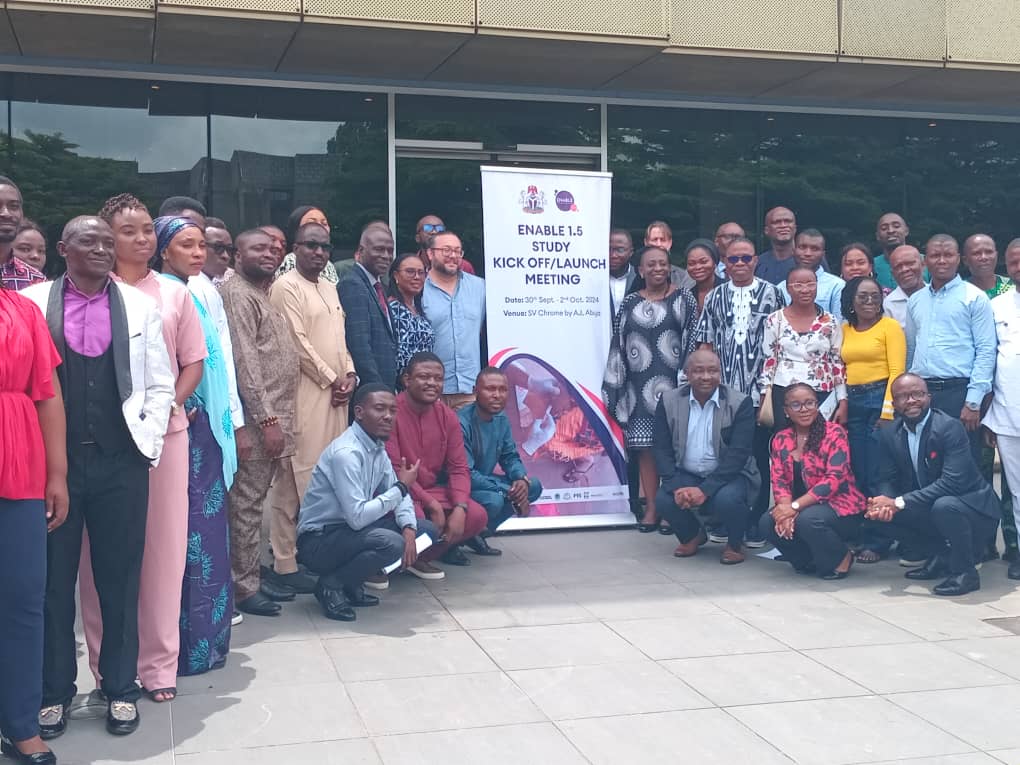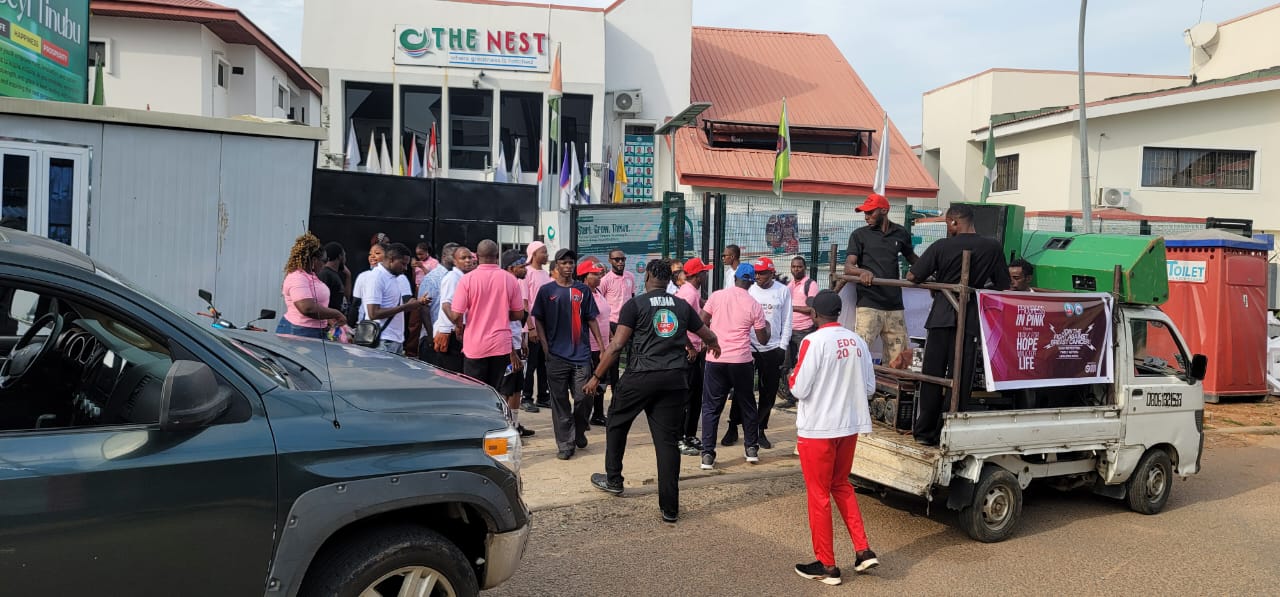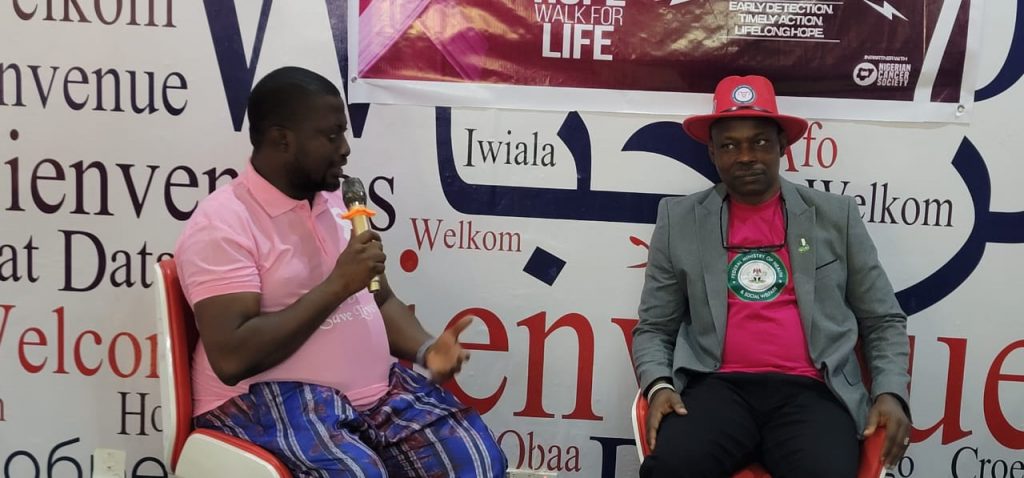Health
CEPI, partners conducting clinical studies to develop vaccine for Lassa Fever

The Coalition for Epidemic Preparedness Innovations (CEPI), says studies are underway to conduct clinical trials to develop a vaccine for Lassa fever in West Africa.
Dr Elsie Ilori, the coalition’s National Project Coordinator for Enable 1.5 in Nigeria disclosed this on Monday in Abuja at the linauguration of the project.
It will be recalled that Lassa fever is a deadly hemorrhagic fever prevalent in West Africa.
According to Ilori, the main purpose of the trials is for clinical studies to be able to produce vaccine towards Lassa fever disease, to ensure that the burden of the disease in the country and the West Africa region is reduced.
“The study will help us understand Lassa fever itself, how people react to the disease, and the effects of the vaccine on people.
“By understanding the disease, we will be able to understand how the vaccine will work with people.”
She also said that the study aimed to understand Lassa fever’s symptoms and effects on people, evaluate the vaccine’s safety, tolerability, and immunogenicity, and develop a vaccine effective against multiple strains of the disease.
“We are working closely with community leaders, healthcare workers, and local authorities to sensitise the public about the study.
“This includes explaining the study’s objectives, benefits, and potential risks.”
She said that three countries, Nigeria, Sierra Leone, and Liberia were participating, with five sites selected based on high Lassa fever burden.
However, Nigeria has three sites: Federal Medical Centre, Owo, Irrua Specialist Teaching Hospital, Edo state and Alex Ekwueme University Teaching Hospital, Abakaliki.
“These sites were selected due to their high disease burden, increasing the likelihood of enrolling participants with Lassa fever,” Ilori added.
She said that the study prioritised community engagement and sensitisation, whereby researchers would conduct house-to-house enrollment, obtaining consent from household heads.
She also added that participants must provide informed consent and could withdraw at any time without consequences.
She further said that the study would help sensitise people and prepare them for vaccine acceptance.
“The study’s success relies on collaboration between researchers, healthcare workers, and community leaders from Nigeria, Sierra Leone, and Liberia.
“We believe that this study will pave the way for a vaccine, bringing relief to communities ravaged by the disease.
“We are one step closer to a vaccine, and that’s a remarkable achievement.
“The study’s findings is expected to also inform public health policy and guide future vaccine development.”
In addition to CEPI, the study is supported by global health partners, including the World Health Organisation and the Federal Government.
Royce Fulton, the Programme Manager, CEPI for the Enable Lassa Research Programme, said that beyond developing the vaccines through clinical trials, it was important to also be able to identify where the disease was.
Also, to build the necessary capacities within the countries and within the partners in Nigeria and other countries in order to be able to really prepare for the great work that lay ahead.
According to him, having clinical trials at a large scale that allow for the identification of the effectiveness of a new vaccine will be with the ambition of having the vaccine ready by 2030 in Nigeria.
“So this Enable 1.5 study, what is going to be the methodology, the outcomes, and when is it possible to be ready? We’re thinking that for the vaccine trials, these are going to be happening imminently.
“We do feel that there is a lot yet to be done for preparedness, for readiness, to make sure the sites and the countries are really equipped with the knowledge, expertise and the tools to be able to conduct large-scale clinical trials.
“So what we have done is spent the past five years implementing a large multi-center prospective cohort trial in order to be able to understand where the disease lies by following 23,000 subjects in the past few years.
“To understand how many of them developed Lassa fever in that time, how many of them are exposed to the vector, which is the rats that live in the houses with them.
“Also, how many of these people can be pulled into further research to help us understand just how effective this vaccine is going to be.
The reports have it that participants from Nigeria, Liberia, and Sierra Leone will be enrolled with selection criteria based on age, with adults, adolescents, and children as young as two years old being eligible, as well as people living with HIV.
The aim of the study is to strengthen country clinical trial capacity for late stage vaccine trials and develop scientific data to guide vaccine development. (NAN) (www.nanews.ng)
Health
APC Youth Leader, Health Minister, Others Champion “Going Pink Walk” for Breast Cancer Awareness in Abuja


Joel Ajayi
It was a vibrant gathering of energetic young men and women across the Federal Capital Territory (FCT) on Saturday in Abuja, as they joined the “Progress in Pink Walk”, a non-competitive awareness march organized by the All-Progressives Congress (APC) Youth Wing to mark Breast Cancer Awareness Month.
The event, themed “Walk for Hope, Walk for Life,” was commenced at The Nest — A Place Where Greatness is Hatched, an over 4 kilometres walk aimed at encouraging early detection, promoting timely medical intervention, and offering hope to those affected by breast cancer.
Leading the walk was the APC National Youth Leader, Dr. Dayo Israel, who has remained consistent in championing initiatives that promote youth empowerment, health consciousness, and community impact.
Over the years, Israel has spearheaded several programs designed to enhance the capacity and wellbeing of young Nigerians.
Globally, October is recognized as Breast Cancer Awareness Month — a period dedicated to increasing awareness, encouraging prevention, and supporting those battling the disease. The APC Youth Wing’s initiative aligns with this global campaign, demonstrating the party’s ongoing commitment to public health advocacy and youth-driven change.
Speaking after the walk, an elated Dr. Dayo Israel explained that the initiative was organized to create awareness among women, both young and old, on the importance of knowing their bodies and seeking medical attention early.
“We want women to know their breasts so well that if anything unusual happens, they act quickly.
“Cancer doesn’t occur overnight it develops over time. awareness, and early detection are key to saving lives,” he said.
He added that the walk also sought to promote fitness as a vital component of a healthy lifestyle and to encourage women to adopt positive habits that support their wellbeing and happiness.
In his remarks, the Minister of State for Health and Social Welfare, Dr. Iziaq Adekunle Salako commended the APC Youth Wing for taking proactive steps to raise awareness about a critical health concern.
“With this step you have taken today, more Nigerians will become aware of the dangers of late detection.
“Unfortunately, eight to nine out of ten breast cancer cases in Nigeria are detected late — a situation we must change through constant awareness and screening,” he said.
He emphasized the importance of prevention, urging Nigerians to take their health seriously through regular check-ups, healthy living, and avoidance of risk factors like smoking.
Also speaking, the President and CEO of the Nigerian Cancer Society, Prof. Abidemi Omonisi, noted that breast cancer remains one of the most prevalent forms of cancer in Nigeria, accounting for up to 40–50% of all cancer cases.
“Breast cancer remains a major public health challenge. Exercise plays a vital role not only in prevention but also in improving outcomes for people living with cancer and other non-communicable diseases such as diabetes and hypertension,” he said.
Prof. Omonisi stressed the need for a community-based response to cancer similar to the national efforts used to combat HIV/AIDS.
“We must involve everyone from schools and youth groups to community organizations to build resilience and eliminate the fear and stigma surrounding cancer,” he added.
He praised the APC Youth Wing for leading the charge, noting that young people, with their creativity and innovation, are uniquely positioned to drive impactful awareness campaigns both online and offline.
The “Progress in Pink Walk” concluded with participants pledging to continue spreading the message of early detection, regular screening, and healthy living underscoring that together, Nigerians can defeat breast cancer through awareness, unity, and action.
-

 Featured6 years ago
Featured6 years agoLampard Names New Chelsea Manager
-

 Featured6 years ago
Featured6 years agoFG To Extends Lockdown In FCT, Lagos Ogun states For 7days
-

 Featured6 years ago
Featured6 years agoChildren Custody: Court Adjourns Mike Ezuruonye, Wife’s Case To April 7
-

 Featured6 years ago
Featured6 years agoNYSC Dismisses Report Of DG’s Plan To Islamize Benue Orientation Camp
-

 Featured4 years ago
Featured4 years agoTransfer Saga: How Mikel Obi Refused to compensate me After I Linked Him Worth $4m Deal In Kuwait SC – Okafor
-
Sports3 years ago
TINUBU LAMBAST DELE MOMODU
-

 News10 months ago
News10 months agoZulu to Super Eagles B team, President Tinubu is happy with you
-
Featured6 years ago
Board urges FG to establish one-stop rehabilitation centres in 6 geopolitical zones
